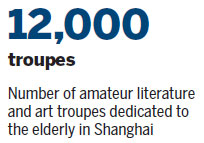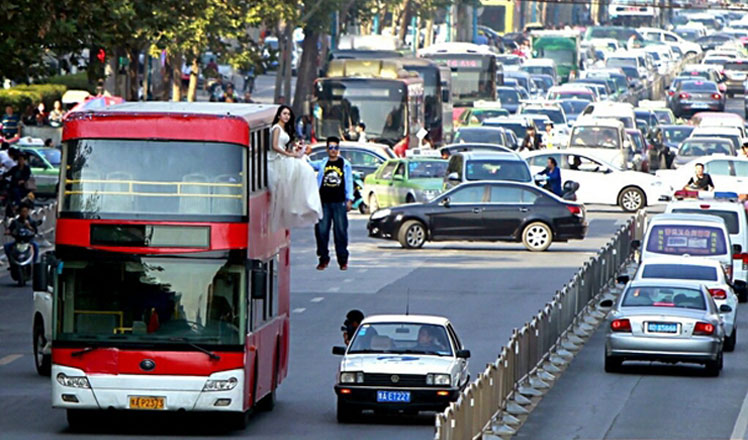When home becomes a prison
Updated: 2015-10-20 07:49
By Zhou Wenting(China Daily)
|
||||||||
Elegantly adorned with three rings, a pearl necklace and a watch encrusted with diamonds that indicate material well-being, Bao Meiyuan said her life is boring and intellectually poor. The 86-year-old Shanghai resident, who has four children, six grandchildren and two great-grand children, is desperate for someone to talk to.
As Chinese society becomes increasingly older and the pace of aging accelerates, many elderly people are enduring loneliness. They adhere to traditional notions of family, centered around their children, but the original "big family" structure is changing and gradually disappearing.
Two years ago, when her husband died, Bao accepted her son's offer to live in a lavishly furnished villa he owns. Her son also hired a carer to provide 24-hour assistance, even though Bao has no major health problems.
"The villa is like a jail for me. My daily life revolves around reading magazines to kill time," the retired typist said, adding that the only other regular event in her life is making phone calls to her four children, requesting to live at their homes in rotation for several days at a time.
Psychologists said it's understandable that many seniors easily feel lonely. In China, the extended family traditionally lives together under the same roof, but the latest generation of newlyweds is choosing to be more independent and live away from their parents and other relatives. That has had repercussions because, traditionally, the spiritual life of elderly people has always been focused on their children.

If they have enough energy, seniors can participate in a wide range of activities. Shanghai boasts nearly 12,000 amateur literature and art troupes and 9,400 sports groups dedicated to the elderly.
"The explosion in inexpensive excursions (for seniors) in recent years also reflects their desire to enrich their lives and integrate with society," said Zhang Haiyin, director of the Department of Psychological Counseling at the Shanghai Psychological Counseling Center.
Sociologists and psychologists are urging seniors to depend less on their children. "They can cultivate new hobbies they are physically able to do and enjoy a high-quality life, both materially and spiritually. They should try to provide spiritual consolation for themselves," said Wang Yuru, chairman of the Shanghai Psychological Counseling Association.
Seniors' children should also provide as much help as possible, because many elderly people become very stressed when faced with changes in health, intellectual capacity and social involvement, according to Wang.
He said some seniors complain of feeling uncomfortable from head to toe, but thorough health checks fail to find any problem. If that occurs, their children should be alerted because it may be a physical manifestation of psychological trauma.
"We call it somatization. It frequently happens to elderly people," he said.
(China Daily 10/20/2015 page6)
- Wide support seen for nationwide smoking ban
- Treat or cheat: Chinese media exposes queer therapies on gay people
- Farmland hot spots increase air pollution
- Mentally impaired earn their bread at Nanjing bakery
- China 'will never recklessly resort to the use of force'
- Chinese look yonder for luxury goods
Most Viewed
Editor's Picks

|

|

|

|

|

|
Today's Top News
Tu first Chinese to win Nobel Prize in Medicine
Huntsman says Sino-US relationship needs common goals
Xi pledges $2 billion to help developing countries
Young people from US look forward to Xi's state visit: Survey
US to accept more refugees than planned
Li calls on State-owned firms to tap more global markets
Apple's iOS App Store suffers first major attack
Japan enacts new security laws to overturn postwar pacifism
US Weekly

|

|
















